Whether you have a disability, a medical condition, or simply need extra assistance, WestJet offers a range of services and accommodations to ensure that your travel experience is safe, comfortable, and stress-free.
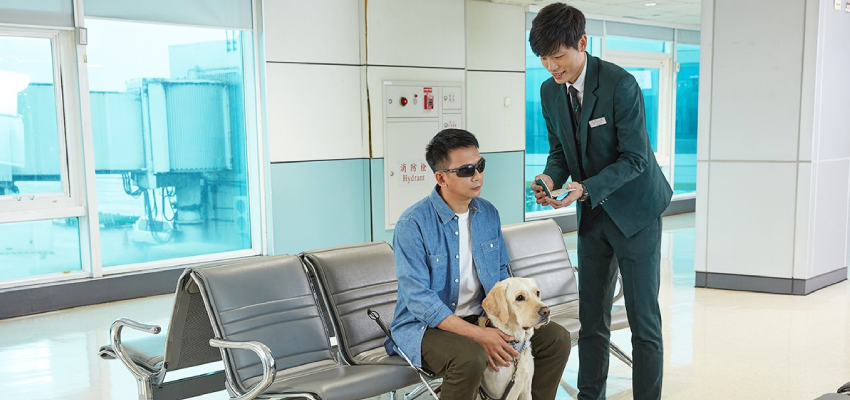
From wheelchair assistance and onboard medical equipment to special meals and seating arrangements, WestJet special assistance team is dedicated to making travel accessible for everyone.
- What services are offered under the Westjet special assistance program?
- Westjet guidelines for passengers with visual & hearing impairments?
- Passengers with cognitive, behavioral, developmental, or psychiatric conditions
- Passengers who need medication and medical equipment
- Passengers traveling with the service animal
- What are the guidelines to carry passengers with oxygen needs?
- Wheelchairs, scooters, and mobility aids with Westjet Airlines
- How to add wheelchair assistance to your booking?
- What is a WestJet Virtual Assistant?
What services are offered under the Westjet special assistance program?
WestJet offers special assistance services to customers with disabilities or medical conditions to ensure their safe and comfortable travel. The services offered under the WestJet Special Assistance Program may include:
- Wheelchair and mobility assistance – WestJet offers assistance for passengers who require a wheelchair or mobility assistance. This may include providing wheelchair service from the check-in counter to the boarding gate, and from the arrival gate to the baggage claim area or ground transportation.
- Service animals – Under Westjet assistive animals service, allows certified service animals to travel with their owners in the cabin. Passengers must provide the appropriate documentation for their service animal, and the animal must be properly harnessed or leashed at all times.
- Medical equipment – Passengers who require medical equipment such as oxygen concentrators or CPAP machines can bring them onboard with them, and WestJet provides the necessary power supply to use the equipment during the flight.
- In-flight assistance – WestJet’s flight attendants are trained to provide assistance to passengers with disabilities or medical conditions during the flight, including assistance with meals, medication, and restroom use.
- Pre-boarding – Passengers who require extra time or assistance to board the plane can pre-board, allowing them more time to settle in and get comfortable before the other passenger’s board.
- Special meals – WestJet offers special meals for passengers with dietary restrictions or food allergies.
- Westjet baggage assistance – WestJet offers baggage assistance services for its passengers. If you need assistance with your baggage during your travel with WestJet, you can contact their customer service or visit the Westjet baggage assistance desk at the airport.
Passengers who require special Westjet assistance are encouraged to contact customer service at least 48 hours before their flight to ensure that all necessary arrangements are made.
Westjet special assistance for passengers with special needs
Westjet guidelines for passengers with visual & hearing impairments?
WestJet Airlines provides assistance to passengers with visual and hearing impairments to ensure their travel experience is safe, comfortable, and accessible. Here are some of the services and accommodations available under the Westjet special assistance program:
- Special Assistance at the Airport – Passengers with visual and hearing impairments can request assistance at the airport. WestJet’s airport staff is trained to provide assistance to passengers who require it, including guiding them to their gate, providing boarding assistance, and escorting them to baggage claim.
- Pre-Boarding Assistance – WestJet offers pre-boarding assistance to passengers with visual and hearing impairments. This allows them to board the aircraft before other passengers, giving them extra time to get settled in their seats and stow their luggage.
- Braille Safety Cards – WestJet provides Braille safety cards for passengers with visual impairments. These cards contain important safety information, including emergency procedures, that passengers can read using Braille.
- Assistance Animals – Passengers with visual impairments can bring a trained guide dog or other assistance animals on board the aircraft free of charge. WestJet requires that passengers provide advance notice of their intention to bring an assistance animal.
- In-Flight Entertainment – WestJet’s in-flight entertainment system includes closed captioning and descriptive video services to assist passengers with hearing and visual impairments.
- Seat Assignments – WestJet offers seat assignments to passengers with disabilities, including those with visual and hearing impairments, to ensure that they are seated in an appropriate location on the aircraft.
To ensure that you receive the appropriate assistance, it is recommended that you contact WestJet’s Special Assistance Team at least 48 hours before your flight to discuss your needs and any special accommodations you require.
Passengers with cognitive, behavioral, developmental, or psychiatric conditions
Passengers with cognitive or developmental conditions, such as autism, may require extra support and assistance during their flight. WestJet offers a special program called the Autism Travel Program, which provides resources and assistance to passengers with autism, including:
- Westjet passenger assistance service helps familiarize the passenger with the airport and airplane environment.
- A designated quiet waiting area before boarding
- Early boarding to allow extra time to settle into the seat.
- Special meal requests, such as gluten-free or nut-free options
- Sensory-friendly kits that include noise-canceling headphones, fidget toys, and more.
Passengers with behavioral or psychiatric conditions may require additional Westjet special assistance as well. WestJet has policies and procedures in place to ensure their safety and comfort, including:
- Notification of the airline of any medication or medical equipment needed on board.
- A requirement for a medical certificate from a licensed physician is to ensure that the passenger is fit to fly.
- The option of pre-boarding or deplaning assistance.
- The option of a private screening process for security checks
Passengers with disabilities, including cognitive, behavioral, developmental, or psychiatric conditions, can contact WestJet’s Special Assistance team for more information and to request accommodations.
It is recommended that passengers contact the airline as soon as possible to make arrangements for their travel.
Passengers who need medication and medical equipment
WestJet Airlines recognizes that some passengers may require medication or medical equipment during their flight.
If you are a passenger who requires medication or medical equipment during your flight with WestJet, it is important to contact WestJet Reservations or the WestJet Medical Assistance Desk in advance of your flight to make arrangements.
- When you call WestJet, provide them with all relevant information about your medical needs, such as the type of medical equipment or medication you require and any instructions for its use.
- You may also need to provide a doctor’s note or other medical documentation to confirm your need for the equipment or medication.
- WestJet will work with you to ensure that your needs are accommodated to the best of their ability, but it’s important to note that some equipment may not be able to be accommodated on all flights due to space or safety limitations.
- Therefore, it’s recommended to contact WestJet as early as possible to allow for adequate time to make arrangements and ensure your needs can be met.
- Additionally, passengers are advised to keep their medication and any necessary medical equipment in their carry-on luggage, as checked luggage can be subject to temperature fluctuations and may not always be easily accessible during the flight.
- It’s also a good idea to carry a copy of any medical documentation with you in case it’s needed during the flight or while passing through security.
Passengers traveling with the service animal
If you plan to travel with a service animal on WestJet Airlines, here are the guidelines you should follow under Westjet special assistance program :
- When booking your flight, let WestJet know that you will be traveling with a service animal. This will allow them to make appropriate arrangements and prepare for your arrival.
- WestJet may require documentation to confirm that your animal is a service animal. This may include a letter from a licensed healthcare professional or documentation showing that your animal has been trained as a service animal.
- WestJet pet policy for service animals may vary depending on the destination and other factors. Make sure you understand their policies and follow them closely. For example, there may be restrictions on the type of animals that are allowed to fly as service animals.
- If your service animal needs to be carried in a carrier, make sure the carrier meets WestJet’s requirements. The carrier should be large enough for the animal to stand up, turn around, and lie down comfortably.
- Before your flight, make sure your service animal is well-trained and comfortable with traveling. This may include gradually introducing your animal to new environments and practicing traveling in a carrier if necessary.
- You are responsible for providing food, water, and other care for your service animal during the flight. Make sure you have everything you need to care for your animals, such as food, water, medication, and waste disposal bags.
What are the guidelines to carry passengers with oxygen needs?
The guidelines for carrying passengers with oxygen needs can vary depending on the mode of transportation, such as air, sea, or land. Below are some general guidelines to consider under the Westjet guest assistance program:
- Before transporting a passenger with oxygen needs, consult with a medical professional to determine the appropriate oxygen flow rate and duration of use. This will help ensure the safety and comfort of the passenger during transportation.
- Let the transportation provider know in advance that a passenger with oxygen needs will be traveling. This will give them time to make necessary arrangements and accommodations.
- Be aware of any regulations or policies that may apply to transporting passengers with oxygen needs. For example, airlines may have specific requirements for the use of portable oxygen concentrators (POCs) on board.
- Provide the transportation provider with any necessary documentation, such as a doctor’s note or oxygen prescription, to confirm the passenger’s oxygen needs.
- Always bring extra oxygen supplies, such as additional tanks or batteries for POCs, in case of unexpected delays or emergencies.
- Store oxygen tanks or POCs in a safe and secure location during transportation to prevent damage or leaks.
- Provide the passenger with information on how to properly use and maintain their oxygen equipment during transportation.
- Ensure that the transportation mode is accessible for the passenger with oxygen needs, such as providing wheelchair assistance or extra time for boarding and disembarking.
Wheelchairs, scooters, and mobility aids with Westjet Airlines
WestJet Airlines welcomes passengers who require mobility aids, including wheelchairs and scooters. Here are some important things to keep in mind:
- Notify the airline in advance – It is recommended that passengers notify WestJet at least 48 hours before their flight if they require mobility aid. This allows the airline to make necessary arrangements to accommodate your needs.
- Size and weight restrictions – There are size and weight restrictions for mobility aids on WestJet flights. The maximum weight for a mobility aid including the passenger is 300 pounds. The mobility aid must also fit within the cargo hold dimensions of the aircraft. It is recommended to check with the airline for further details.
- Battery-powered devices – If the mobility aid is battery-powered, passengers must ensure that the battery is properly installed and the device is in a stable position for transport. Passengers should also carry the battery with them in the cabin, and not in checked luggage.
- Assistance at the airport – WestJet provides assistance for passengers who require mobility aids, including boarding and deplaning assistance. It is recommended to notify the airline in advance if you require such assistance.
- Accessible seating – WestJet offers accessible seating on their flights, which provides additional legroom and space for passengers who require mobility aids. It is recommended to request accessible seating at the time of booking.
How to add wheelchair assistance to your booking?
To request Westjet add wheelchair assistance to your booking navigate to the manage booking tab. You can follow these steps:
- Visit WestJet’s website at www.westjet.com and click on the “Manage trips” option at the top of the page.
- Enter your booking information, including your reservation code and last name, and click on “Find.”
- Once your booking is displayed, click on the “Add special assistance” link located under the “Traveler information” section.
- Select “Wheelchair Assistance” from the list of available options and follow the prompts to provide additional information, such as the type of wheelchair you will be using and whether you need assistance getting to and from your seat.
- Review your changes and confirm that you want to add wheelchair assistance to your booking.
Contact Westjet – You can also contact Accessibility Desk to request Westjet wheelchair assistance or other special services for your flight.
| Contact Centre | Toll-free: 1-888-937-8538 |
| TTY for hearing impaired | Toll-free: 1-877-952-0100 |
| Guests with disabilities experiencing difficulties accessing WestJet.com: | Toll-free: 1-866-693-7853Email: [email protected] |
Westjet Assistance via Social Media
You can contact WestJet via social media by using the following methods:
- Twitter – You can tweet your concerns or questions to WestJet’s official Twitter handle (@WestJet) and a customer service representative will assist you. You can also send them a direct message (DM) by following them and clicking on the “message” button.
- Facebook – You can post on WestJet’s official Facebook page (https://www.facebook.com/WestJet) and a customer service representative will respond to your query. You can also send them a private message by clicking on the “message” button on their page.
- Instagram – You can send WestJet a direct message on Instagram (@westjet) or tag them in a post or comment and they will respond to you.
Remember to provide as much detail as possible when contacting WestJet via social media, including your booking reference number, flight details, and any other relevant information.
What is a WestJet Virtual Assistant?
WestJet has a virtual assistant named Juliet, which can help customers with a variety of tasks related to their travel with WestJet. Juliet is an AI-powered chatbot that can assist customers with their bookings, flight information, baggage, and other travel-related inquiries.
Westjet Virtual Assistant
You can access it via WestJet’s website or mobile app. Here are some examples of how you can use Juliet:
- Book a Flight – You can ask Juliet to help you book a flight with WestJet. Juliet will guide you through the booking process and provide you with available flights, pricing, and other information.
- Check Flight Status – If you have a flight with WestJet, you can ask Juliet to provide you with the latest information on your flight’s status, such as departure and arrival times.
- Manage Your Booking – If you need to make changes to your booking, such as adding baggage or changing your seat, you can ask Juliet to assist you with WestJet’s managed booking service. assistance.
- Baggage Information – If you have questions about WestJet’s checked baggage policy, you can ask Juliet for information on baggage allowances, fees, and other related queries.
The airline offers a range of services, including pre-boarding assistance, wheelchair assistance, and medical equipment carriage, to ensure that passengers with disabilities have access to the same level of service and convenience as other travelers.
Frequently Asked Questions (FAQs)
What does special assistance mean for Westjet Airlines?
Contact Westjet at least 48 hours before your flight departure to request any special assistance you may need.
What disabilities qualify for preboarding on Westjet?
Disabilities that may qualify for preboarding on WestJet include Mobility disabilities, Visual disabilities: Hearing disabilities, cognitive disabilities, or any other medical condition.
How to get wheelchair assistance with Westjet Airlines?
If you have already booked your flight and did not request wheelchair assistance at the time of booking, you can add this service by calling Westjet customer service.
Can airlines ask for proof of disability?
The specific requirements for documentation may depend on the type of disability and the type of accommodation or service being requested.
For example, if a passenger requires the use of a service animal, Westjet may request documentation such as a letter from a medical professional confirming that the animal is necessary to assist with a disability.
What qualifies as a disability for airlines?
Any degree of physical or mental disability, including a mental disorder, developmental disability, learning disability, or dysfunction involved in understanding or using symbols or spoken language.
How can I prove my disability?
WestJet may ask you to provide information about your disability and how it affects your ability to travel. This may include medical documentation or a letter from your doctor.
What medical conditions prevent you from flying?
Some medical conditions that may impact your ability to fly with any airline include severe respiratory illness, recent surgery, heart or lung conditions, and certain contagious diseases.


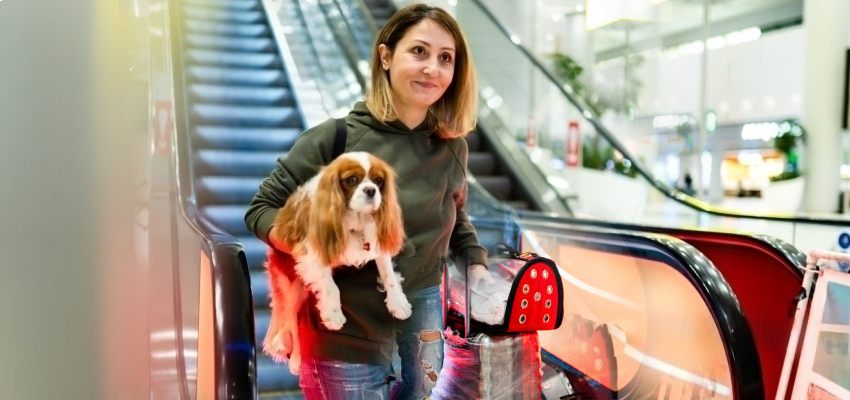 WestJet Pet Policy
WestJet Pet Policy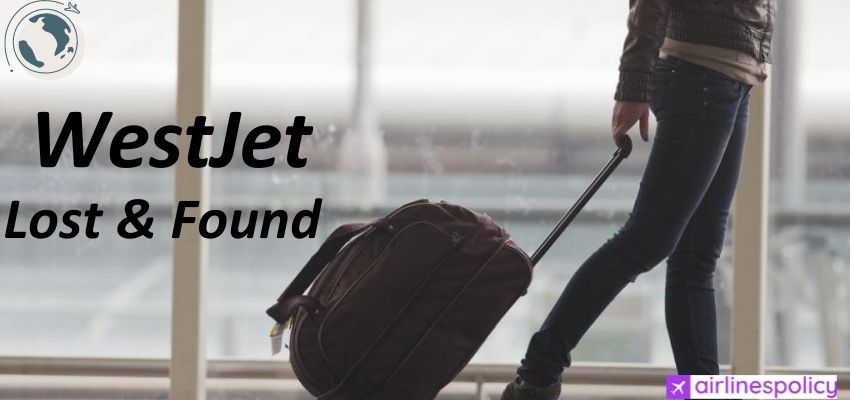 WestJet Lost and Found
WestJet Lost and Found Westjet Unaccompanied Minor Policy
Westjet Unaccompanied Minor Policy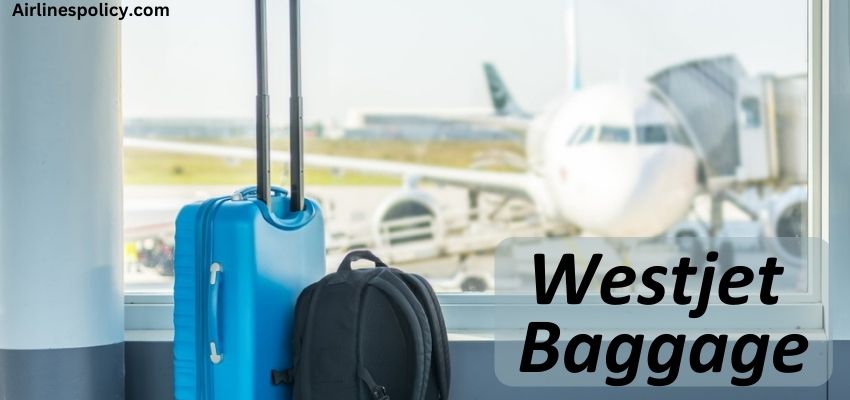 WestJet Baggage Policy
WestJet Baggage Policy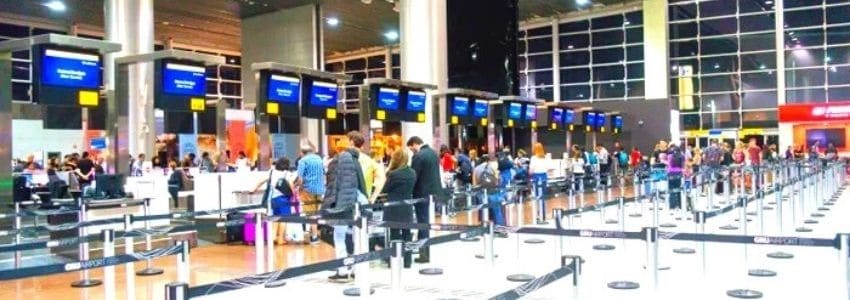 WestJet Check-In
WestJet Check-In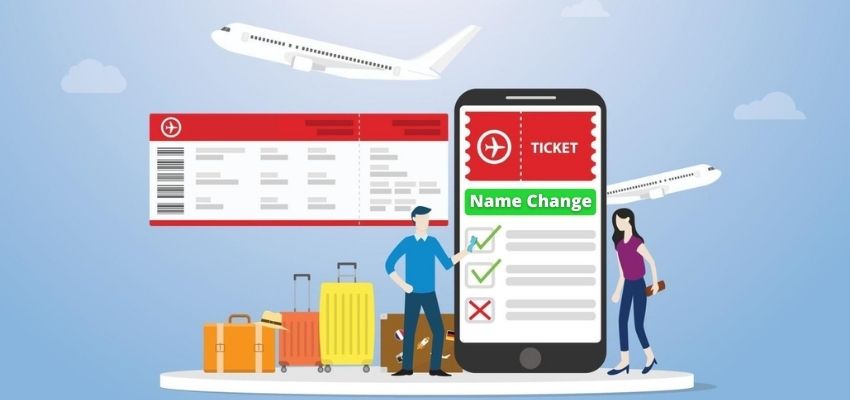 Westjet Name Change Policy
Westjet Name Change Policy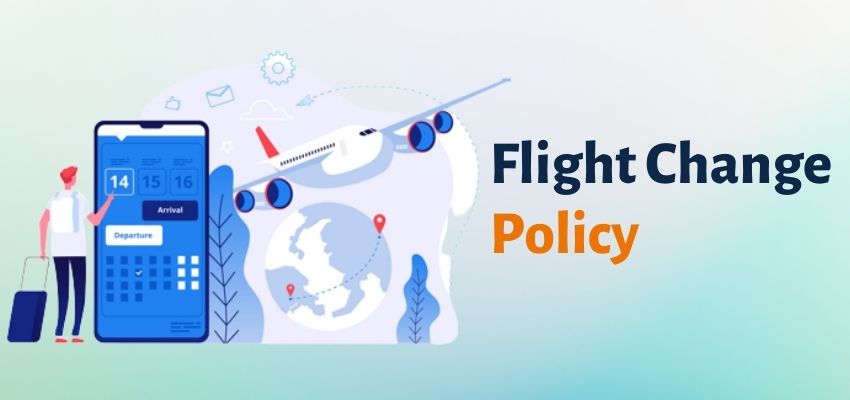 Westjet Flight Change Policy
Westjet Flight Change Policy WestJet Cancellation Policy
WestJet Cancellation Policy